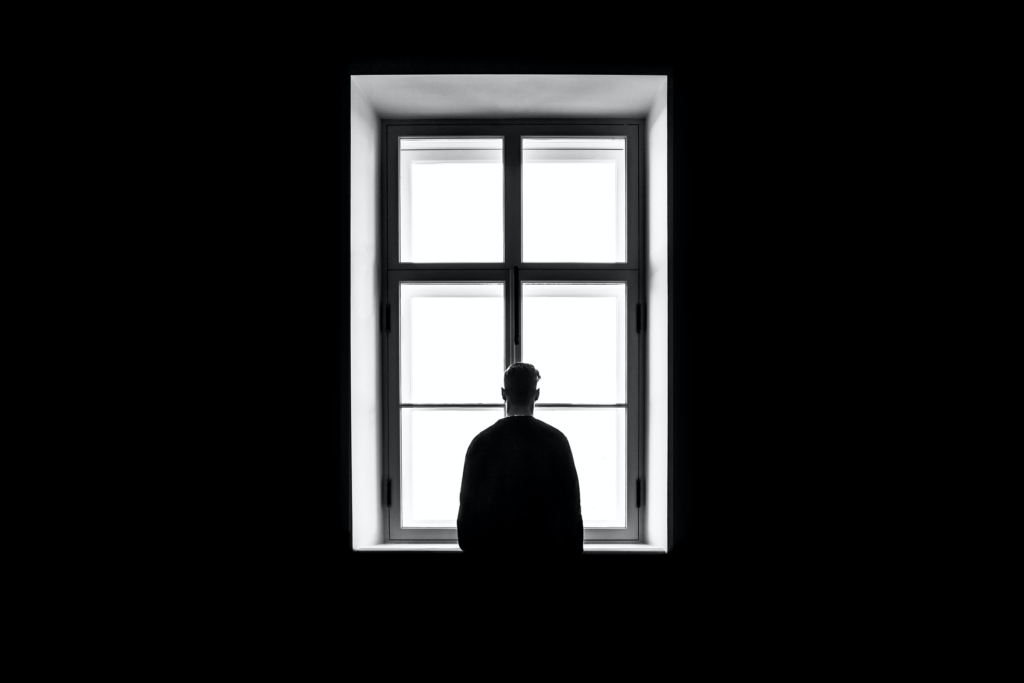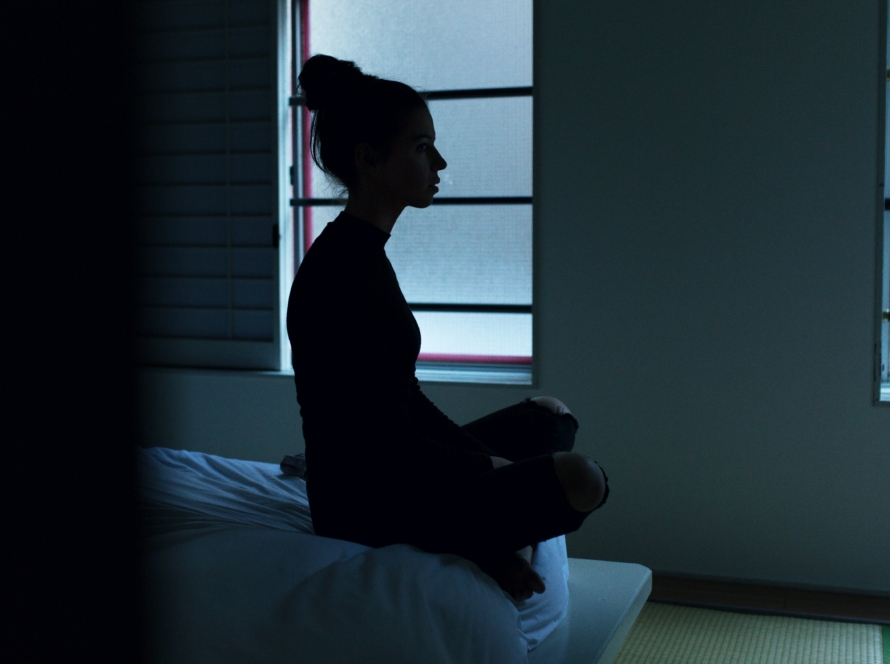Post-Traumatic Stress Disorder (PTSD) is a widely recognised mental health condition that can develop after experiencing a traumatic event. We talked in-depth about the role of trauma on mental health here. However, a more intricate and challenging variant known as Complex PTSD (C-PTSD) exists, primarily arising from prolonged or repetitive trauma, especially during childhood. While both conditions share some common symptoms, C-PTSD stands apart due to its unique features.
In this blog post, we will delve deeper into what Complex PTSD is, how it distinguishes itself from regular PTSD, explore the profound influence of childhood trauma on its development, and discuss therapeutic approaches for healing.

What is Complex PTSD?
Complex PTSD, or C-PTSD, is a complex and severe mental health condition that develops as a result of prolonged, repeated, or severe traumatic events, often occurring during childhood. In contrast to regular PTSD, which typically stems from a single traumatic incident, C-PTSD evolves from enduring and cumulative trauma, lasting for extended periods.
Distinct Features of Complex PTSD
Complex PTSD, or C-PTSD, is a complex and severe mental health condition that develops as a result of prolonged, repeated, or severe traumatic events, often occurring during childhood. In contrast to regular PTSD, which typically stems from a single traumatic incident, C-PTSD evolves from enduring and cumulative trauma, lasting for extended periods.
- Emotional Dysregulation: Emotional dysregulation is a hallmark feature of C-PTSD. Individuals grappling with C-PTSD frequently struggle to control their emotions, experiencing intense mood swings that can be unpredictable and overwhelming. These emotional roller coasters can significantly impede their daily lives and relationships.
- Interpersonal Problems: C-PTSD is closely associated with difficulties in forming and maintaining healthy relationships. Individuals with C-PTSD may wrestle with trust issues, exhibit a heightened sense of vulnerability, and find it exceedingly challenging to establish emotional connections with others. This can lead to isolation and exacerbate their symptoms.
- Negative Self-Concept: Those afflicted by C-PTSD frequently carry a negative self-concept. They may unfairly blame themselves for the trauma they endured, experience chronic self-doubt, and persistently harbour feelings of guilt or shame. This distorted self-perception can hinder their healing and recovery process.
- Chronic Feelings of Helplessness: C-PTSD can engender chronic feelings of helplessness and hopelessness. Individuals may adopt a belief that they are powerless to alter their circumstances or that the world is inherently unsafe. Such sentiments can lead to despair and resignation.
- Distorted Self-Perception: A distorted self-perception is common in C-PTSD, causing individuals to perceive themselves as damaged, flawed, or fundamentally unworthy. This skewed self-image can profoundly affect their self-esteem and self-worth, complicating their path to recover.
These features often underlie many of the challenges individuals with C-PTSD face in their daily lives, and addressing them is a fundamental part of the healing and recovery process.

Common Causes of Complex PTSD
Understanding common causes of C-PTSD is vital for both individuals affected and professionals working to support them. It underscores the importance of early intervention, trauma-informed care, and specialised therapeutic approaches to address the specific needs and experiences of those living with C-PTSD. Here are some of the common causes:
- Childhood Trauma: Childhood trauma is a prominent and leading cause of C-PTSD. It encompasses physical, emotional, or sexual abuse, neglect, and exposure to domestic violence. Traumatic experiences during the formative years of childhood can have a profound and enduring impact on an individual’s psychological well-being. The vulnerability and developmental stage of childhood make it particularly susceptible to long-term trauma consequences.
- Prolonged Abuse or Captivity: Adults who have endured prolonged periods of abuse, captivity, or coercive control are at risk of developing C-PTSD. These situations can lead to a pervasive sense of powerlessness and dependency on the abuser, making recovery especially challenging.
- War and Combat: Military personnel and survivors of war or combat situations can develop C-PTSD due to prolonged exposure to traumatic events, including witnessing violence, losing comrades, and facing constant danger. The cumulative nature of these experiences can result in profound psychological distress.
- Human Trafficking: Victims of human trafficking, a heinous crime involving exploitation and captivity, are highly vulnerable to C-PTSD. The constant threat to their safety and well-being can lead to severe and enduring psychological consequences.
- Cultural or Religious Oppression: Some individuals may experience C-PTSD as a result of cultural or religious oppression, wherein they endure restrictive practices, discrimination, or forced conformity over an extended period. The cumulative effect of such oppressive environments can be deeply traumatising.
- Chronic, Complex Family Dysfunction: Dysfunctional family environments characterised by chronic abuse, neglect, or volatile relationships can also lead to C-PTSD. Children growing up in such environments often experience continuous exposure to emotional and psychological trauma, resulting in complex and pervasive psychological consequences.
- Institutional Abuse: Individuals who have experienced abuse or neglect within institutions such as orphanages, group homes, or correctional facilities are at risk of developing C-PTSD. The power imbalance and the prolonged nature of the exposure to traumatic conditions can lead to this condition.
Can People Recover from C-PTSD?
The path to recovery from Complex PTSD is challenging but entirely possible. While the healing process may be lengthy, many individuals have experienced significant improvements in their symptoms and quality of life. The key to recovery lies in a combination of factors:
- Professional Help: Seeking the support of trained mental health professionals who specialise in trauma and C-PTSD is essential. They can provide guidance and therapeutic interventions tailored to the individual’s needs.
- Supportive Relationships: Building a network of supportive and understanding relationships is crucial. Friends and family who are informed about C-PTSD can offer a safety net of emotional support.
- Self-Care: Practising self-care is an important aspect of recovery. This includes maintaining a healthy lifestyle, setting boundaries, and prioritising physical and emotional well-being.
- Therapeutic Approaches: Engaging in evidence-based therapies, such as those mentioned earlier, can significantly contribute to recovery. These therapies help individuals process and heal from the traumatic experiences that underlie their C-PTSD.
- Resilience and Hope: Believing in the possibility of recovery and resilience is vital. Individuals with C-PTSD can learn to manage their symptoms and regain control over their lives.

Therapeutic Approaches to Healing C-PTSD
Healing from C-PTSD often requires specialised therapeutic approaches aimed at addressing its complex and multifaceted nature. Here are some therapeutic methods that have shown effectiveness:
- Trauma-Focused Cognitive-Behavioural Therapy (CBT): This approach helps individuals identify and challenge negative thought patterns and behaviours related to their trauma. CBT can empower individuals to regain control over their thoughts and reactions.
- Dialectical Behavior Therapy (DBT): DBT combines cognitive-behavioural techniques with mindfulness strategies. It helps individuals manage overwhelming emotions and develop healthier interpersonal skills.
- Eye Movement Desensitization and Reprocessing (EMDR): EMDR involves processing traumatic memories while focusing on external stimuli, such as eye movements or hand tapping. This approach can reduce the emotional charge of traumatic memories.
- Mindfulness and Meditation: Mindfulness practices can help individuals with C-PTSD develop emotional regulation skills and increase their self-awareness. Meditation and mindfulness can also reduce stress and anxiety.
- Group Therapy and Support Groups: Sharing experiences with others who have faced similar trauma can provide a sense of validation and reduce feelings of isolation. Group therapy and support groups can foster a sense of belonging and understanding.
Complex PTSD represents a multifaceted and challenging mental health condition that often arises from prolonged or repetitive trauma, particularly during childhood. It distinguishes itself from regular PTSD through its distinct symptoms, including emotional dysregulation, interpersonal problems, and a negative self-concept. Understanding the causes and consequences of C-PTSD, with a particular focus on the impact of childhood trauma, is crucial for individuals affected by this condition and for mental health professionals working to support them.
To learn more about C-PTSD and healing through therapy, reach out to us via info@nnpsychology.co.uk or call us on 07341193858
Remember that recovery from Complex PTSD is absolutely possible through specialised therapeutic approaches, a support network, and a belief in one’s own resilience. With time and dedication, individuals can regain control over their lives, find healing, and cultivate hope in the face of complex trauma, especially when the trauma originates from the sensitive context of childhood.
Further Reading:
https://www.nhs.uk/mental-health/conditions/post-traumatic-stress-disorder-ptsd/complex/



